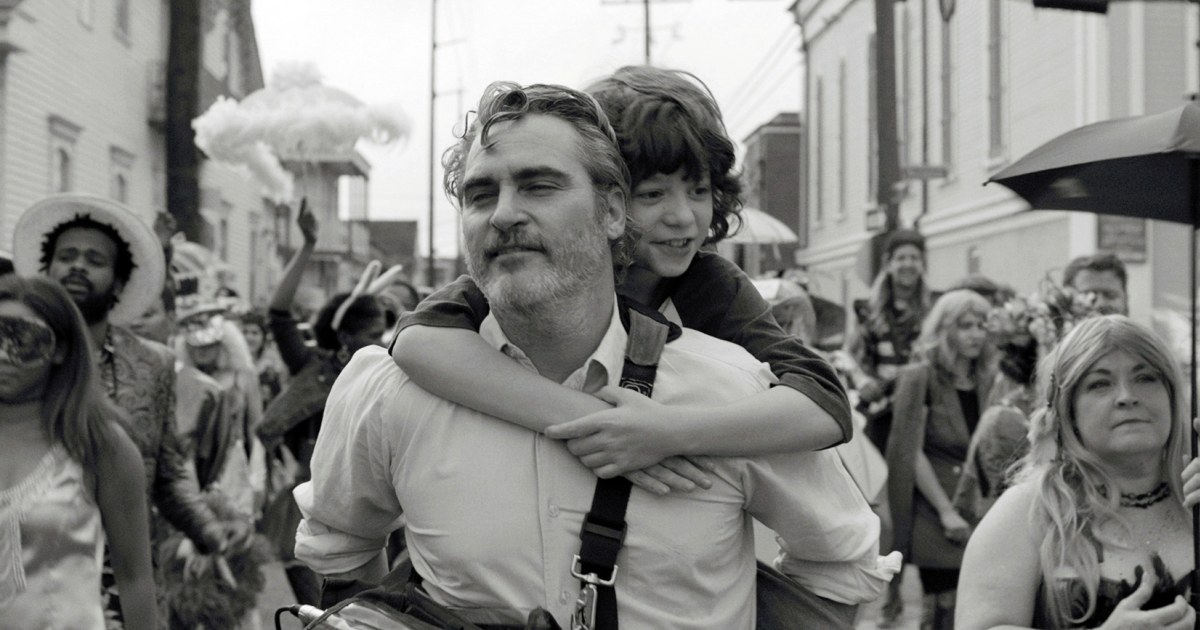
At the beginning of Mike Mills’ gorgeous new movie “C’mon C’mon” — part scripted drama, part documentary as the film’s actors interview real subjects — Johnny (Joaquin Phoenix) asks a teenage girl how adults could have set her up better for success as an adult. The answer? “Pay attention to what’s going on around them.”
It’s a simple exchange, but it stuck with me. I’ve never seen a movie articulate so well the vast gulf between adults and children.
It’s a simple exchange, but it stuck with me. I’ve never seen a movie articulate so well the vast gulf between adults and children. Mills’ black-and-white drama was shot in American cities at every corner of the country. It has the kind of pathos that’s easy to despise in movies with children as central characters, but the movie’s documentary segments have an authenticity that keeps the drama’s subject matter from becoming cloying. Johnny is a radio producer, and he spends much of the movie traveling around the country interviewing real children about their expectations and fears for the future. (There’s a good podcast about the process here.)
Paying attention is a big problem in parenting, as Johnny learns. Twice, the little boy that Johnny is taking care of, Jesse (a remarkable Woody Norman), angrily leaves Johnny behind in public spaces, and it takes Johnny a crucial few seconds too long to notice both times.
As a parent, these scenes are scarier than any horror movie; I lost my kid in a Target for probably no longer than five minutes when he was 2 years old, a relatively short period that was more than enough time for me to imagine every horrible thing that could possibly have happened to him in grim detail. I was in the midst of trying to figure out who to call first — the police or my wife — when a boy of 8 or 9 ran up to me with his pals and said: “Is he wearing a green shirt? We found him.”
Adults are keenly aware of effects and consequences, and yet can be totally oblivious to their surroundings. Kids are keenly aware of their surroundings, but often have little knowledge about what will probably happen next, good or bad. (Case in point: The little boys who found my kid left the store before I could buy each of them a PlayStation.)
The film opens in Detroit, where, on the first anniversary of his mother’s death, Johnny decides to call his sister, Viv (Gaby Hoffmann). Viv reveals that her husband, Paul (Scoot McNairy), has moved out and is suffering a relapse of his bipolar disorder, forcing Viv to split her attention between her husband and their 9-year-old son, Jesse.
Soon enough, Johnny is in Los Angeles goofing around with Jesse as only an uncle can, and volunteering to watch him while a relieved Viv goes north to see Paul and help him settle into his new life without her. As the trip lengthens unexpectedly — or perhaps inevitably, given Paul’s dependency on Viv — Johnny finds himself forced by circumstance to take on a role somewhere between uncle and surrogate dad. Jesse, meanwhile, is forced to reckon with the adult world in some of the same ways Johnny is asking his young interviewees to grapple with it, too.
Adults are keenly aware of effects and consequences, and yet can be totally oblivious to their surroundings.
Viv and Johnny may be distracted by adult concerns, but they’re not oblivious to the problem of their own distractedness. A kid, they acknowledge, needs enough attention to flourish. Ecological collapse, governmental ruin, poor health care — these are not just problems but cascades of problems that make it harder to give Jesse the attention he craves, and needs.
These big adult problems are new to Jesse, who begins to experiment with Johnny’s radio tools, like his long condenser microphone and his enormous headphones. The equipment makes Jesse look smaller, physically, but they also enable him to drink in more and more of a world that is not going to be kind to him. It’s really cute, and sad, and Jesse is very annoying, which is also cute. And also sad.
At one point Johnny asks Viv whether Jesse has some kind of sleeping disorder because he keeps insisting on getting into bed with his uncle. No, Viv says, and gives him some practical tips to calm Jesse down. “I guess you’re just used to it,” Johnny sighs. “I’m not used to it,” Viv retorts. “I love him more than I can even understand and that makes it even worse when I can barely stand to be in the same room with him going on and on talking, talking relentlessly about nothing, random nothingness, interrupting every thought I might have! It never stops! It’s a nightmare!”
And that’s what makes “C’mon C’mon” stand out. If this was mostly a film about how parenting is great and kids are wise, it would be insufferable. Instead, it’s about how parenting is impossible and kids are annoying and we’ve also ruined everything for them. But hopefully they’re going to grow up and be happy and optimistic anyway.
Isn’t that awful? Isn’t that great?
Source: | This article originally belongs to Nbcnews.com









